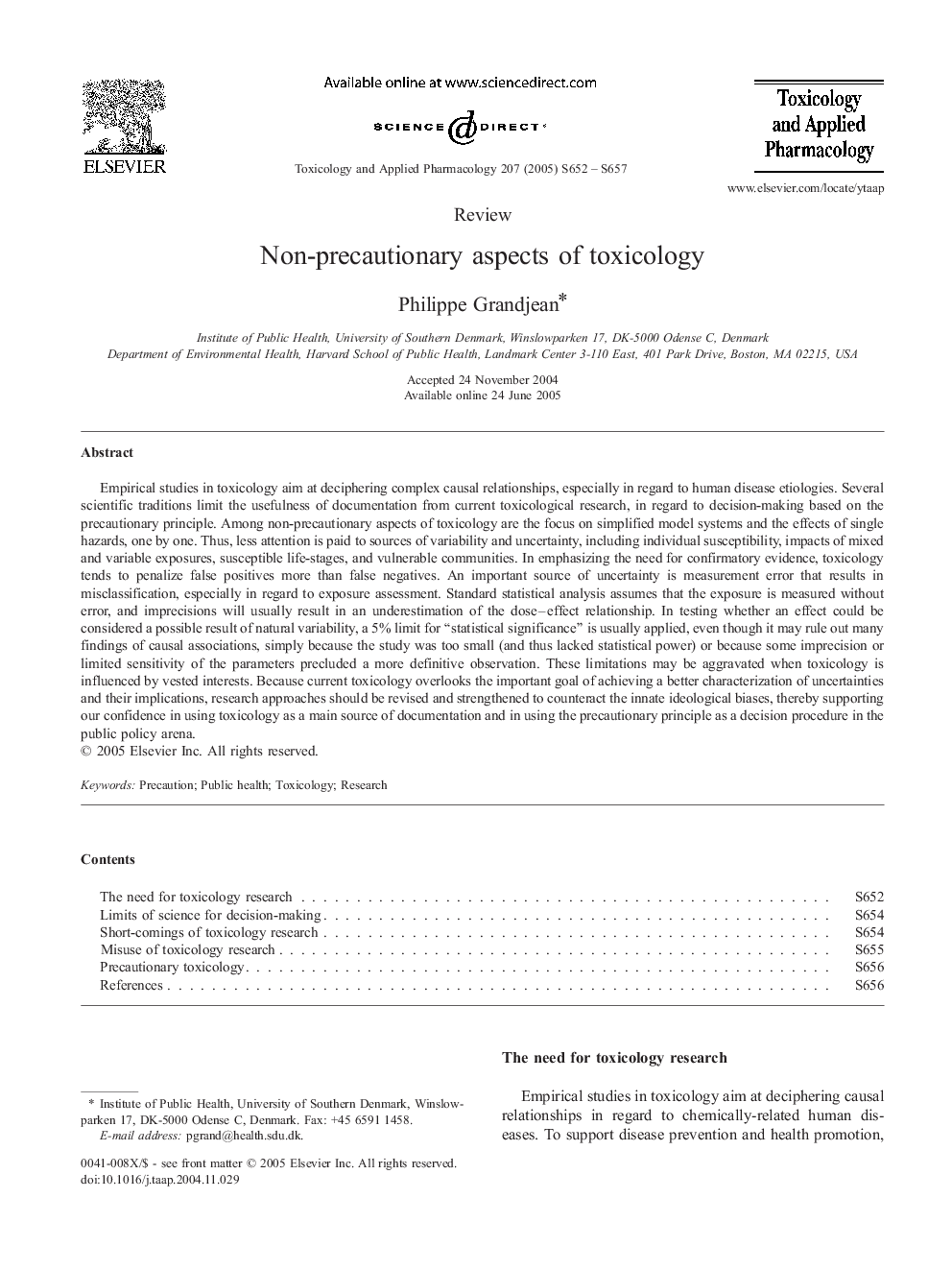| کد مقاله | کد نشریه | سال انتشار | مقاله انگلیسی | نسخه تمام متن |
|---|---|---|---|---|
| 9017806 | 1128665 | 2005 | 6 صفحه PDF | دانلود رایگان |
عنوان انگلیسی مقاله ISI
Non-precautionary aspects of toxicology
دانلود مقاله + سفارش ترجمه
دانلود مقاله ISI انگلیسی
رایگان برای ایرانیان
کلمات کلیدی
موضوعات مرتبط
علوم زیستی و بیوفناوری
علوم محیط زیست
بهداشت، سم شناسی و جهش زایی
پیش نمایش صفحه اول مقاله

چکیده انگلیسی
Empirical studies in toxicology aim at deciphering complex causal relationships, especially in regard to human disease etiologies. Several scientific traditions limit the usefulness of documentation from current toxicological research, in regard to decision-making based on the precautionary principle. Among non-precautionary aspects of toxicology are the focus on simplified model systems and the effects of single hazards, one by one. Thus, less attention is paid to sources of variability and uncertainty, including individual susceptibility, impacts of mixed and variable exposures, susceptible life-stages, and vulnerable communities. In emphasizing the need for confirmatory evidence, toxicology tends to penalize false positives more than false negatives. An important source of uncertainty is measurement error that results in misclassification, especially in regard to exposure assessment. Standard statistical analysis assumes that the exposure is measured without error, and imprecisions will usually result in an underestimation of the dose-effect relationship. In testing whether an effect could be considered a possible result of natural variability, a 5% limit for “statistical significance” is usually applied, even though it may rule out many findings of causal associations, simply because the study was too small (and thus lacked statistical power) or because some imprecision or limited sensitivity of the parameters precluded a more definitive observation. These limitations may be aggravated when toxicology is influenced by vested interests. Because current toxicology overlooks the important goal of achieving a better characterization of uncertainties and their implications, research approaches should be revised and strengthened to counteract the innate ideological biases, thereby supporting our confidence in using toxicology as a main source of documentation and in using the precautionary principle as a decision procedure in the public policy arena.
ناشر
Database: Elsevier - ScienceDirect (ساینس دایرکت)
Journal: Toxicology and Applied Pharmacology - Volume 207, Issue 2, Supplement, 1 September 2005, Pages 652-657
Journal: Toxicology and Applied Pharmacology - Volume 207, Issue 2, Supplement, 1 September 2005, Pages 652-657
نویسندگان
Philippe Grandjean,